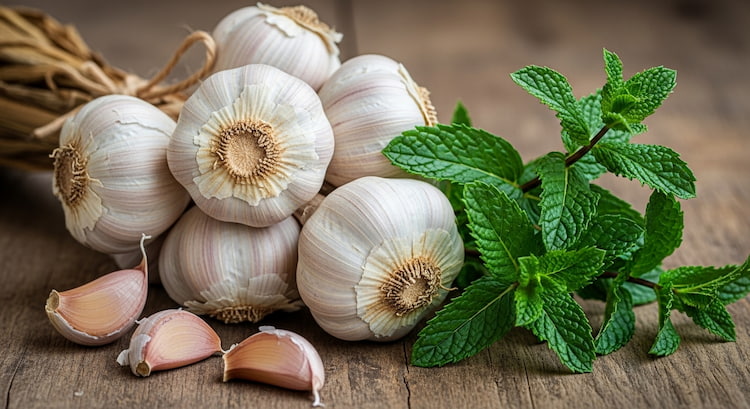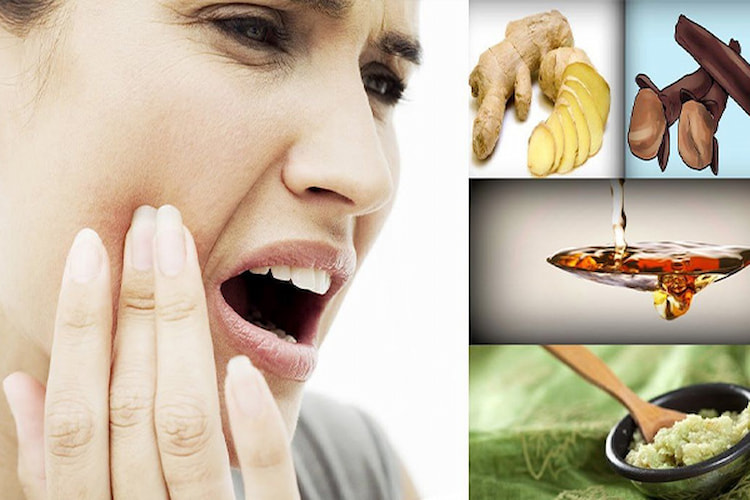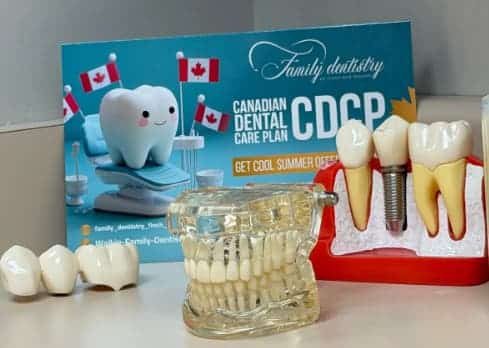In a busy life, a toothache can suddenly interrupt your day like an unwelcome guest; it causes physical discomfort and worries about its cause and how quickly you can visit a dentist. To help you relieve your dental pain until you can visit us, we’ve gathered a list of helpful ways to reduce toothache with home remedies. remedies. These methods offer temporary relief and show our dedication to your dental health.
Reminder: Although these remedies can reduce your pain, seeing a dentist for a long-lasting solution is crucial. Therefore, you can contact our emergency dentist now and get professional, immediate help.
Walk-in Family Dental
Do You Need Emergency Dentist?
Walk-in Family Dental provides quick and expert care for dental emergencies, including toothaches and knocked-out teeth.

7 Home Remedies for Toothache Relief
A toothache is one of the common dental problems that can strike at the worst time possible. Let’s look into some options to reduce dental pain at home. You have many choices, from natural antibacterial to simple and effective tooth pain relief techniques. Each suggested treatment comes from old methods proven by new studies.
1. Saltwater Rinse
Saltwater rinse is an appropriate toothache remedy for all kinds of pain and sensitive mouths. It also restores a natural PH balance in the mouth, creating a less welcoming environment for harmful bacteria to grow. This method is cost-effective and easily accessible, making it a great initial treatment for minor toothaches and oral irritation. Also, because it’s gentle, it’s good for people of all ages. It’s a safe way to quickly ease dental pain.
Dealing with a severe toothache at night? Check out this article: Extreme Tooth Pain at Night Keeping You Awake? Read This First

2. Cold Compress
Cold compresses are especially effective for toothaches resulting from trauma, such as sports injuries or sudden hits, reducing immediate swelling and making the pain less noticeable. Use the cold compress for 20 minutes, then take a 20-minute break to prevent problems like frostbite or nerve damage. Additionally, covering the ice pack in a thin towel or cloth before application can protect the skin of the face from cold burns, ensuring the treatment remains safe and effective.
Dealing with Dental Pain? Contact Us Now!
Walk In Family Dentistry provides quick and expert care for dental emergencies, including toothaches. Please contact us immediately to help relieve your dental pain.
3. Clove Oil
According to a study on Healthline, clove oil has been used as a toothache treatment at home for centuries in traditional medicine. For safe use, mix clove oil with another oil, such as coconut or olive oil, to help prevent irritation or burning sensations, especially in children or those with sensitive gums. The suggested mix is a couple of drops of clove oil for every teaspoon of milder oil, applied directly to the affected area with a cotton swab or added to water for a soothing mouth rinse.
4. Peppermint
Another option is peppermint for tooth pain. When you combine peppermint oil with base oil, you can smoothly use it directly on the gums to ease the pain. Making a mix from fresh peppermint leaves can work as a cooling mouthwash that calms and cleans your mouth. For safety, it’s important to use peppermint oil in small amounts and always mix it with another oil to prevent irritation, especially if you have sensitive skin or gums.
Chewing on fresh peppermint leaves is also a natural way to release the essential oils directly where the pain is, offering immediate, though temporary, relief from discomfort.
Suggested Article: Why a Dental Checkup is Important?
5. Garlic
Garlic can be effective for dental pain relief due to its natural antibacterial and anti-inflammatory properties, primarily from allicin, a compound released when a clove is crushed. Applying crushed garlic directly to the affected tooth or chewing a clove gently can help kill bacteria causing infection and reduce inflammation, easing pain.
Studies also suggest garlic’s antimicrobial effects can combat oral pathogens, while its analgesic properties provide temporary relief. This makes it a popular home remedy for toothaches.

6. Hydrogen Peroxide Rinse
A hydrogen peroxide rinse can help kill bacteria and relieve discomfort from toothaches and gum disease. We’ll give instructions on how to mix and use it safely to prevent any irritation. Mixing equal parts of 3% hydrogen peroxide with water creates a strong antimicrobial rinse that targets the bacteria causing toothaches and gum infections.
You should keep the mix in your mouth for about 30 seconds, ensuring it reaches all the painful spots, then rinse with plain water to remove any remaining peroxide. This method should be used at most twice a week to avoid damage to the mouth’s inner surfaces and keep the mouth’s healthy bacteria in balance.
7. Guava Leaves
Guava leaves can help with swelling, fight off germs, and relieve pain. Chew on fresh guava leaves or apply a paste from crushed leaves directly to the affected area. This helps reduce toothache and fight infection by killing bacteria.
To create a comforting mouthwash, boil the guava leaves in water and allow them to cool down. It helps with sore throats and mouth wounds. Additionally, the flavonoids in guava leaves help reduce gum inflammation, making this natural medicine a complete treatment for various dental illnesses.

When to See a Dentist for Your Dental Pain
You should see a dentist for dental pain if:
- The pain lasts more than two days.
- The pain is severe or getting worse.
- You notice swelling in your face or jaw.
- You have a fever, bad taste, or discharge from the tooth.
- You find it hard to chew, swallow, or open your mouth.
These signs may mean there’s an infection or other serious issue that needs professional treatment. It’s always safer to have a dentist check it as soon as possible.
Worth Reading: 6 Great Tips to Keep Your Teeth Healthy and Safe

Reduce Toothache with Home Remedies & Visit a Dentist to Treat the Problem!
The home remedies detailed in this blog can provide temporary relief until you can access professional dental care; however, they are not alternatives to the treatment a dentist can offer. The health of your teeth and gums is important to your overall well-being, and ongoing tooth pain may indicate a more serious problem.
So, why not book a same-day appointment with our team at Walk In Family Dentistry now? Our team can find and fix what’s causing your pain. From restorative dentistry, like dental fillings, to general dental services like dental cleaning in North York, we offer various dental services to restore your oral health.
Walk-in Family Dental
Do You Need Emergency Dentist?
Walk-in Family Dental provides quick and expert care for dental emergencies, including toothaches and knocked-out teeth.

FAQ
How to treat toothache at home without visiting a dentist?
To manage tooth pain when you can’t see a dentist, take over-the-counter pain relievers like ibuprofen, apply a cold compress to the affected area, and rinse your mouth with warm salt water.
How do you cure a toothache without going to the dentist?
To temporarily relieve a toothache without seeing a dentist, apply clove oil to the painful area, rinse with salt water, and use a cold compress. These remedies can ease the pain until you get professional treatment.
Which finger to press for toothache?
According to acupressure, gently pressing the area between your thumb and index finger (called the Hegu or LI4 point) may help reduce toothache pain temporarily. However, this should not replace professional dental care.
Which side should I lay on with a toothache?
It’s best to sleep with your head elevated and avoid lying on the side of the painful tooth. This helps reduce blood flow to the affected area, easing pressure and pain.
Should I brush my teeth with a toothache?
Yes, you should still brush your teeth gently to keep your mouth clean and prevent infection. Use a soft-bristled toothbrush and avoid brushing directly over the sore spot if it’s too sensitive.
How long will a tooth hurt before the nerve dies?
It depends on the cause and severity of the damage. A tooth nerve can take a few days to several weeks to die. If your pain is severe or lasts more than two days, it’s important to see a dentist as soon as possible.
Have you ever tried a home remedy for a toothache? Share your experience or favorite tip in the comments below; your story might help someone find relief too!



